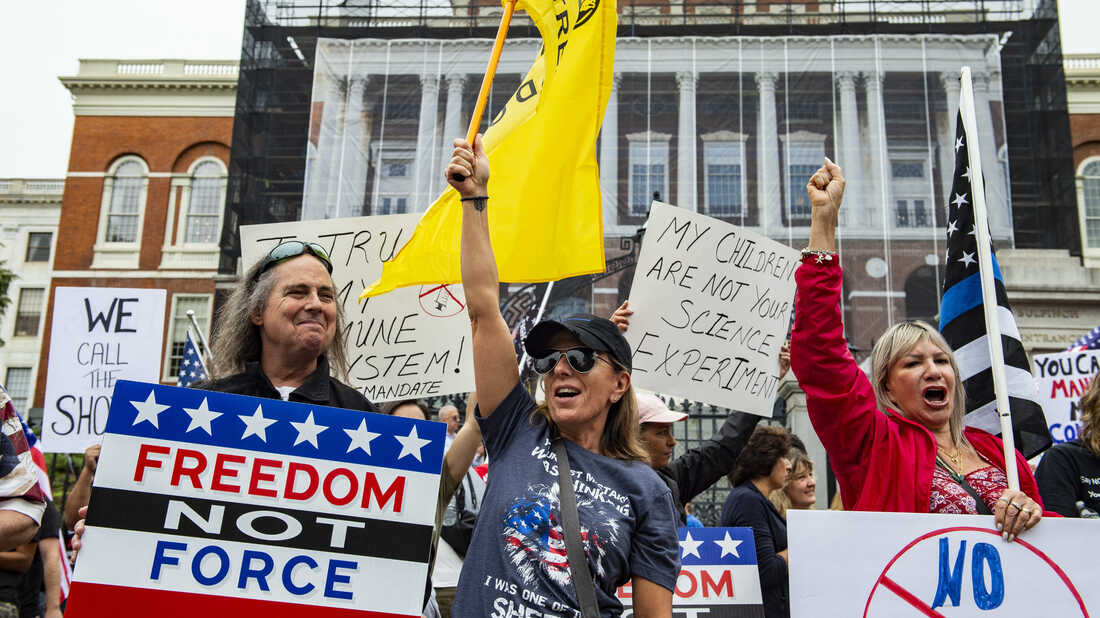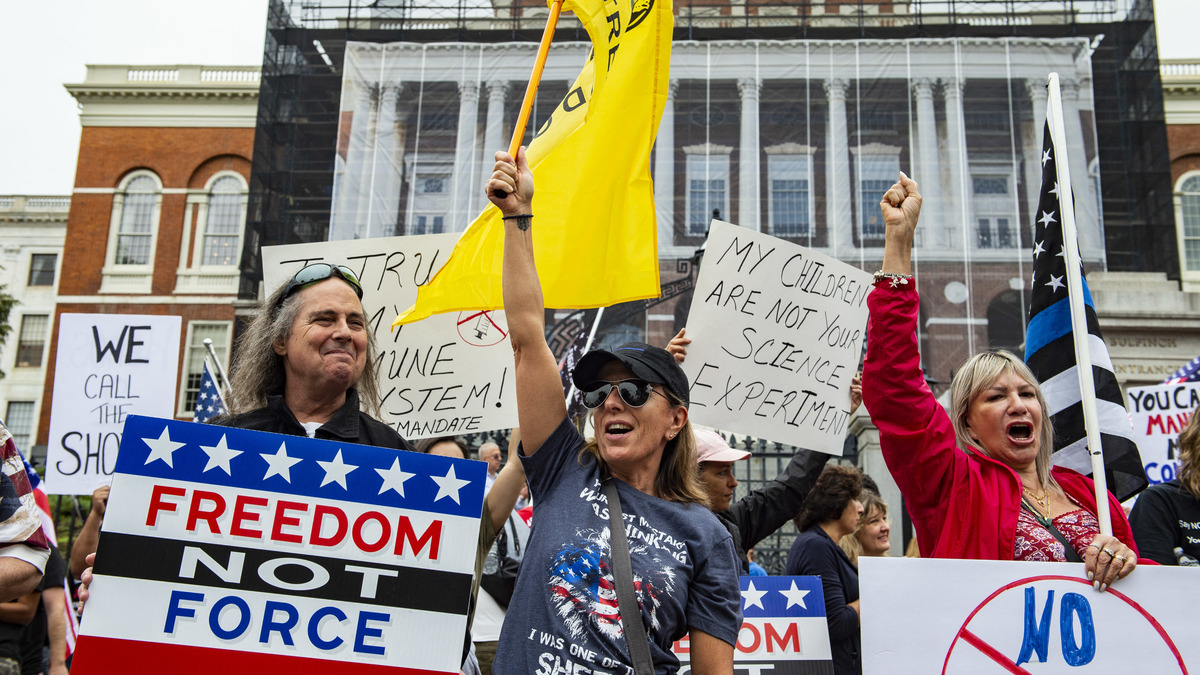
Demonstrators gather outside the Massachusetts State House in Boston to protest Covid-19 vaccination and mask mandates. Joseph Prezioso/AFP via Getty Images hide caption

Demonstrators gather outside the Massachusetts State House in Boston to protest Covid-19 vaccination and mask mandates.
Joseph Prezioso/AFP via Getty ImagesSome city and state workers around the country have already begun to resist workplace vaccination rules on religious grounds. Soon those rules will be the norm in the private sector too, with the Biden administration's announcement this month that businesses with 100 or more employees must require those employees to be vaccinated or undergo weekly testing.
NPR correspondents Andrea Hsu and Shannon Bond explain what the law says about religious exemptions to vaccine rules in the workplace.
Email us at
This episode was produced by Brent Baughman and Sam Gringlas. It was edited by Courtney Dorning, Emily Kopp, Uri Berliner, Jason DeRose, and Fatma Tanis. Our executive producer is Cara Tallo.

 Live Radio
Live Radio